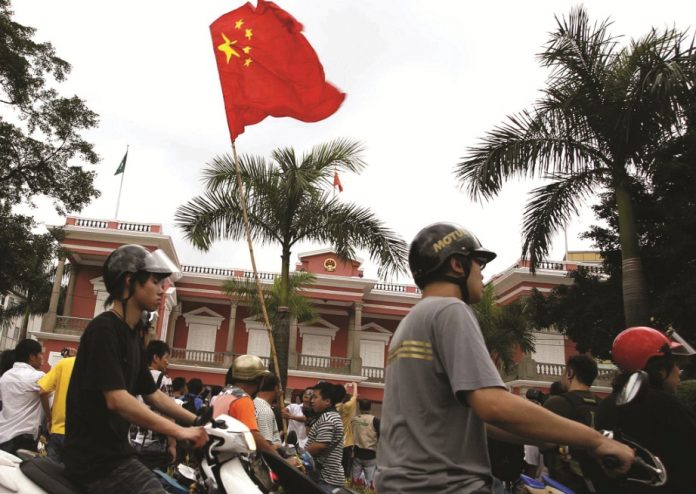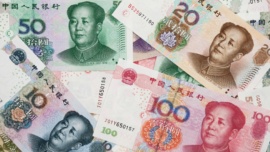The Portuguese never put democratisation in the forefront of their concerns, but the first elections in all of China took place in Macau, well before Hong Kong. Some fruits remained . . .
MB Aug 2019 Special report | The most imperfect democracy
Macau may have been the ‘First Democratic Republic of the East’ (see text on these pages) but this democracy was experienced by very few.
First, because until 1974 there was only one party competing in the elections and after the Carnation Revolution of that year, because it was a matter that concerned only the Portuguese: In the first elections held in Macau after 1974 (which some scholars consider to be the first sign of democratisation in Greater China) only 2,846 individuals were registered voters, with only half exercising their right . . .
In the 1976 elections, the Chinese were able to participate in the territory ‘for more than five years at the time of the census,’ a requirement from which the Portuguese and the Macanese were exempt.
By 1999, things had changed: more and more Chinese were involved and elected, more seats in the Assembly resulted from universal suffrage and . . . the elections arrived in Hong Kong (the first ballots for the Legislative Council only took place in 1991).
And since 1994 universal suffrage became the most important issue in the transition process of Hong Kong, under the proposal of political reform presented by Governor Chris Patten, while in Macau the question never arose.
“Macau and Hong Kong are interesting cases of hybrid regimes. The Portuguese and British governments created hybrid regimes in the two city states during the colonial era,” say Ying-ho Kwong and Mathew Y.H. Wong of the University of Hong Kong.

“Political power was highly concentrated in the hands of colonial Governors and some co-opted local elites, but the people were denied the right to elect their own governments. However, a certain level of civil liberties was protected.”
And if the Portuguese did not have the democratisation of the political system at the top of the agenda, the results obtained were not very different from those achieved in Hong Kong – it was China, on the other side of the table.
“The Portuguese Administration of Macau was marked by weaknesses such as an ineffectual civil service, a compartmentalised bureaucratic structure, a partially democratic Legislative Assembly, a non-elected Portuguese-dominated government and an ineffective legal and judicial system” – Yufan Hao
“The Portuguese colonial rulers could have done better if they had introduced reforms to the public administrative system with efficiency, effectiveness and economy (the 3Es),” points out political commentator Sonny Lo, “with legacies being felt now in Macau where bureaucratic capacity remains quite weak.”
The idea that “instead of democratisation Portugal could have done more in building up a better public administrative system in Macau,” advocated by Sonny Lo, what is echoed by several others.
“The Portuguese Administration of Macau was marked by weaknesses such as an ineffectual civil service, a compartmentalised bureaucratic structure, a partially democratic Legislative Assembly, a non-elected Portuguese-dominated government and an ineffective legal and judicial system,” is the primary accusation of the team led by Professor Yufan Hao.
“Largely in contrast to Hong Kong, the Portuguese colonial government did not train elite Chinese civil servants, so there were few qualified professionals in the government at the time of the handover,” says Professor Li Sheng, Department of Government and Public Administration, University of Macau, adding, “While Western-oriented Chinese intellectuals were anxious to see a democratic SAR in the near future, the Macau Chinese community leaders tried all means to convince the masses that it would simply be better to return to the motherland.”
Still, the Portuguese left an inheritance. It may not have been the most meaningful, but “the introduction of a cursory democracy in Macau in the mid-1970s and in Hong Kong in the early 1980s led to the emergence of democrats in domestic politics,” states Hong Kong based-researcher Bill Chou.
Professor Hebert S. Yee adds: “It is of the greatest importance that after the various elections to the Legislative Assembly and Municipal Assemblies in the 1990s a new electoral culture of Macau was gradually formed; with the passage of time the current discussion and participation of citizens in political affairs also became vulgarised.”
Yufan Hao submits another argument: “Thanks to the increased democratisation in Macau in 1976, local pro-Beijing groups and associations were channelled and co-opted into various political institutions, such as the Legislative Assembly, the consultative council and other advisory bodies, thereby narrowing the gap between the colonial state and society.”
“Portugal as a colonial power was [only] lightly interested in developing democracy in Macau,” is how renowned sinologist Jean A. Berlie responds to the question posed by Macau Business, “but was the most tolerant nation on earth,”

1585
Deputy Sulu Sou has ignited some of the most controversial moments in the current Legislative Assembly, one of which occurred a year ago when he said that there was more democracy in Macau during the Portuguese Administration than today.
Violently attacked for these words, Sulu Sou may go to look for arguments in the book A História e os Homens da Primeira República Democrática do Oriente (The History and the Men of the First Democratic Republic of the East) first published in 1974.
‘On April 10, 1585,’ reads an excerpt, ‘the residents decided to establish themselves as a small community in which every citizen had the right to be a voter and to be elected as a voter; royalties that the natives of other parts of the Kingdom, and also necessarily qualified, could achieve once established or married in the city.
‘The elections were made every three years and in each of them the people organised a tariff with the names ‘cleared’ for the several areas, which was transmitted to Goa for the Viceroy’s knowledge that he was required to know the persons assigned to the posts, even though he was aware that he could not choose or decide upon them.’
























